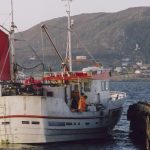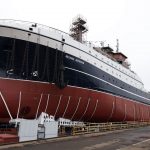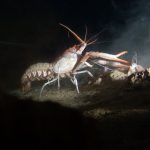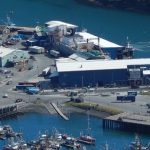“The resource situation is more positive today than what it’s been for a long time, but it’s still necessary to make some adjustments. The Norwegian seafood industry is under heavy pressure due to turbulence in the currency and financial markets, official regulations, decrease in frozen fish prices and an increase in import of substitute products from China, New Zealand and Vietnam,” says Aker Seafoods CEO Yngve Myhre.
Aker Seafoods’ fleet is being upgraded with the acquisition of a combined fresh and frozen trawler, which provides increased flexibility to deliver fresh fish and which will improve the utilization of today’s quotas. The group’s processing segment is also undergoing reorganization and three processing plants will be responsible for producing a wide assortment of fish products. In Denmark, the group is closing down two sites and transferring all of its production to the company’s remaining operations. The remaining seven processing and receiving plants in Norway and Denmark will focus on niche products of high quality, e.g. fresh and salt fish production.
“The reorganizations are based on prior experiences we’ve had with similar projects in Kjøllefjord. Through good cooperation with local, regional, and national politicians, we achieved an effective and profitable production by making the most of the plant’s best competence,” says Myhre.
The measurements above are strategic moves to utilize company resources better. By reorganizing, Aker Seafoods is concentrating on higher production of fresh and consumer packed products. More specialization will establish a solid foundation for increasing the group’s long-term profitability.
The reorganization of the processing plants demands higher flexibility of the company fleet. Through a more flexible quota system trough the Ministry of Fisheries and Coastal Affairs’ proposed act of a combined fishing scheme that was introduced last week, Aker Seafoods is in a better position to improve utilization of its raw material and increase its production of fresh fish.
“Aker Seafoods will experience a short-term decline in its results. This will affect the group’s results for the last six months of 2008. In the long-term, Aker Seafoods will achieve a more effective production, better product mix, reduced fixed costs and a further strengthening of our position in the European market,” says Myhre.
“We are seeing that when the economic market is unstable, our European customers cut costs by spending less money on high quality seafood. The prices for some products, such as frozen finished products and cod, are therefore dropping. This has also resulted in an increase in frozen products for stock,” says Myhre.
For the third and fourth quarter of 2008, the instability in the financial and currency market is causing reduced prices in NOK and lower EBITDA margins than the group’s target at 7.5-9 percent this year. The mediation between the ship owner’s federation, Fiskebåtredernes Forbund, and the Norwegian engineer federation did not lead to an agreement, and the ocean-going fishing fleet went on a strike starting today, Tuesday October 21st. A possible long-term strike will have negative consequences for Aker Seafoods’ resources and temporary lay-off situation, as well as the company’s fourth quarter results.
The long-term forecast remains positive due to an increase in the cod and haddock quotas in 2009 of just over 20 percent. The latest developments of a stronger US dollar and Euro compared to the Norwegian krone are positive for Aker Seafoods’ competitive position. Lower oil prices will reduce the fleet’s fuel costs.
Aker Seafoods presents its third quarter results on October 28, and the group management will present a more detailed review of the company business areas and the measurements that are being implemented.








